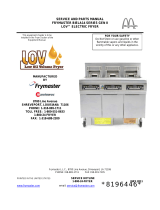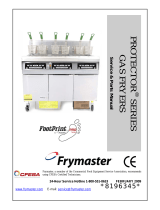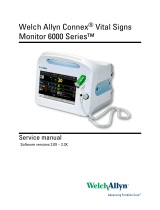
Document Number: FRY_INST_8197985 03/2023
KCCM board BSP software upgrade process
Note – This process will erase/wipe out stored events and connectivity parameters. After this upgrade
process, you will have to configure KCCM for connectivity parameters.
1. Format a USB stick in FAT32 format.
2. Place KCCM software (Rootfs.ubi*, u-boot.scr and uImage-3.10-ts-
armv7l) on the USB stick.
3. Remove the JIB if applicable and locate the KCCM USB port. The location
may vary on the KCCM USB port extension. On some, the port is located
behind a protective cap, on the side of the FIB box (see Figure 1). On
others the FIB cover may need to be removed, the USB cable removed
from the KCCM board and inserted directly into the KCCM board (see
Figure 2). NOTE: If a modem is already attached to the KCCM board,
disconnect the modem and insert the USB directly into the KCCM
board.
4. Insert USB drive with BSP UPDATE files (KCCM software) into the KCCM
extension port (see Figures 3 & 4).
5. Remove power from the fryer for at least 30 seconds.
6. Reapply power to the fryer.
7. Wait 5 minutes for software to load.
8. Press
9. The GATEWAY SOFTWARE VERSION and
other information is shown (see Figure
4).
10. If the gateway software version does
NOT match the intended version
(v00.02.012), repeat these steps above
again.
11. Remove the USB drive.
12. Insert USB drive with CONFIG.INI files
into the KCCM extension port (see Figures 2 and 3). Wait about 2 minutes for files to load.
13. Remove the USB drive.
KCCM board tar file upgrade process
Note – This process will upgrade application software, it will retain stored events and connectivity
parameters.
1. Format a USB stick in FAT32 format.
2. Place KCCM tar file on the USB stick.
3. Make sure that Fryer is powered up.
4. If the Gateway board is booted completely it will display the software version in information
screen (see steps 8 and 9 in above section).
5. Remove the JIB if applicable and locate the USB port. Refer to Figures 1 in above section for
locating the USB port. NOTE: If a modem is already attached to the KCCM board, disconnect
the modem and insert the USB directly into the KCCM board otherwise insert into KCCM
extension port (see Figures 3 in the previous section.
6. Wait 5 minutes for software to load.
Figure 1
Figure 3
Figure 4
Figure 2












